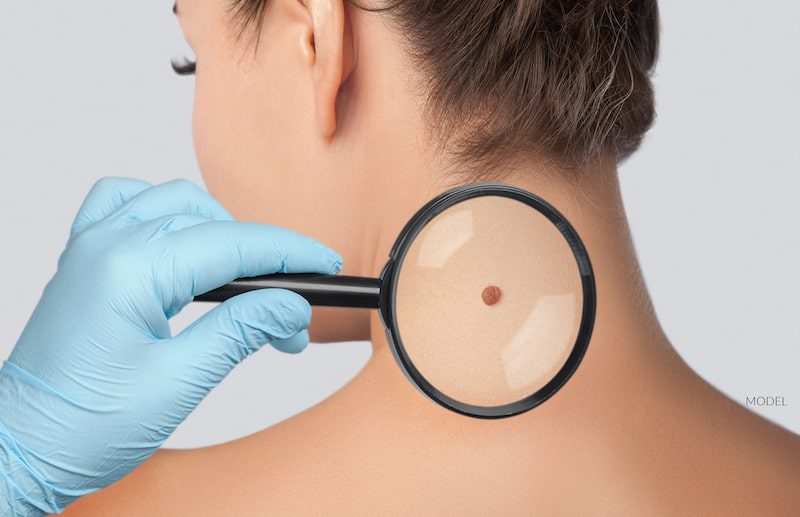Mohs Surgery, Skin Cancer | The Office of Dr. Vincent Hung
3 Minute Read:
Skin cancer is the most common type of cancer in the United States. It is estimated that about a fifth of all Americans will develop skin cancer at some point in their lifetime.
Below is a rundown of the frequently asked questions about skin cancer.

What Is Skin Cancer?
Skin cancer can be understood as an abnormal growth of cells on the skin. This issue usually occurs as a result of overexposure of the skin to ultraviolet radiation from the sun.
What Are the Common Types of Skin Cancer?
There are three main types of skin cancer: squamous cell carcinoma (SCC), basal cell carcinoma (BCC), and melanoma.
BCC is the most common of the three. It affects the basal cells of the skin, which are essentially the cells responsible for making new cells to replace the dying ones. BCC usually develops in areas that are most exposed to the sun, including the face, neck, head, and hands.
SCC is the second most common form of skin cancer. It usually affects the outer surface of the skin in areas such as the head, face, and neck. It also occurs in areas such as the genitals and the mucus membranes.
Melanoma is not as common as BCC and SCC, but it happens to be the most dangerous — even life-threatening. It usually affects the cells responsible for making the skin pigments and can spread rapidly through the lymph nodes.
What Are the Signs of Skin Cancer?
Each form of skin cancer is associated with some unique warning signs.
BCC is associated with signs such as:
- A small shiny bump
- A scaly, red flat patch
- A black or brown bump
- A lesion that bleeds
- A non-healing sore
Squamous cell carcinoma is associated with signs such as:
- A scaly red patch that looks like a rash
- A persistent small ulcer on the lips
- A crusted open sore
- A raised scaly lump on the scalp, hands, legs, ears, or forearm
Melanoma usually presents itself as a mole that changes shape, size, and color. The mole might also bleed, itch, or cause pain.
How Is Skin Cancer Diagnosed?
When you notice an unusual spot on the surface of your skin, you need to see a dermatologist.
The dermatologist will examine the spot to determine if you have skin cancer. To this end, your dermatologist will remove the spot or a part of it and study it using a microscope to see if there are any cancer cells.
If cancer cells are present, your dermatologist will write a biopsy report and highlight the kind of skin cancer you have.
How Is Skin Cancer Treated?
Skin cancer can be treated in several ways depending on the type of cancer in question and its stage of development.
Some common treatment options include:
- Mohs surgery
- Excisional surgery
- Cryotherapy
- Radiation therapy
- Photodynamic therapy
Once you have been diagnosed with skin cancer, your dermatologist or surgeon will explain your options and advise you on the best steps to take.
Can Skin Cancer Be Prevented?
Since skin cancer is often caused by overexposure of the skin to the sun’s UV radiation, the best way to prevent it is to take measures that reduce your exposure to the sun.
Some examples of such measures include:
- Using a broad-spectrum sunscreen
- Seeking shade whenever possible
- Wearing sunglasses to protect your eyes
- Wearing hats with wide brims
- Wear long-sleeved shirts and pants
It is also important to keep an eye on all moles and other skin lesions to make sure they look healthy.
Need to Learn More About Skin Cancer Concerns or Treatment?
Get in with Dr. Vincent C. Hung’s practice today to learn more about skin cancer and how it is treated.
Give us a call at (626) 432-5032 or fill out our online contact form.
